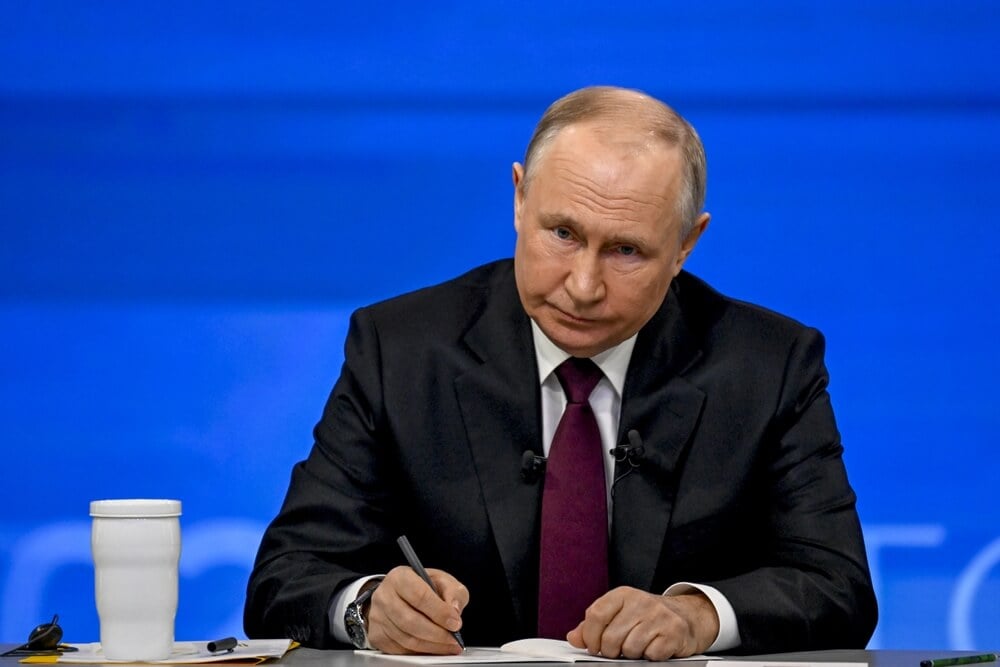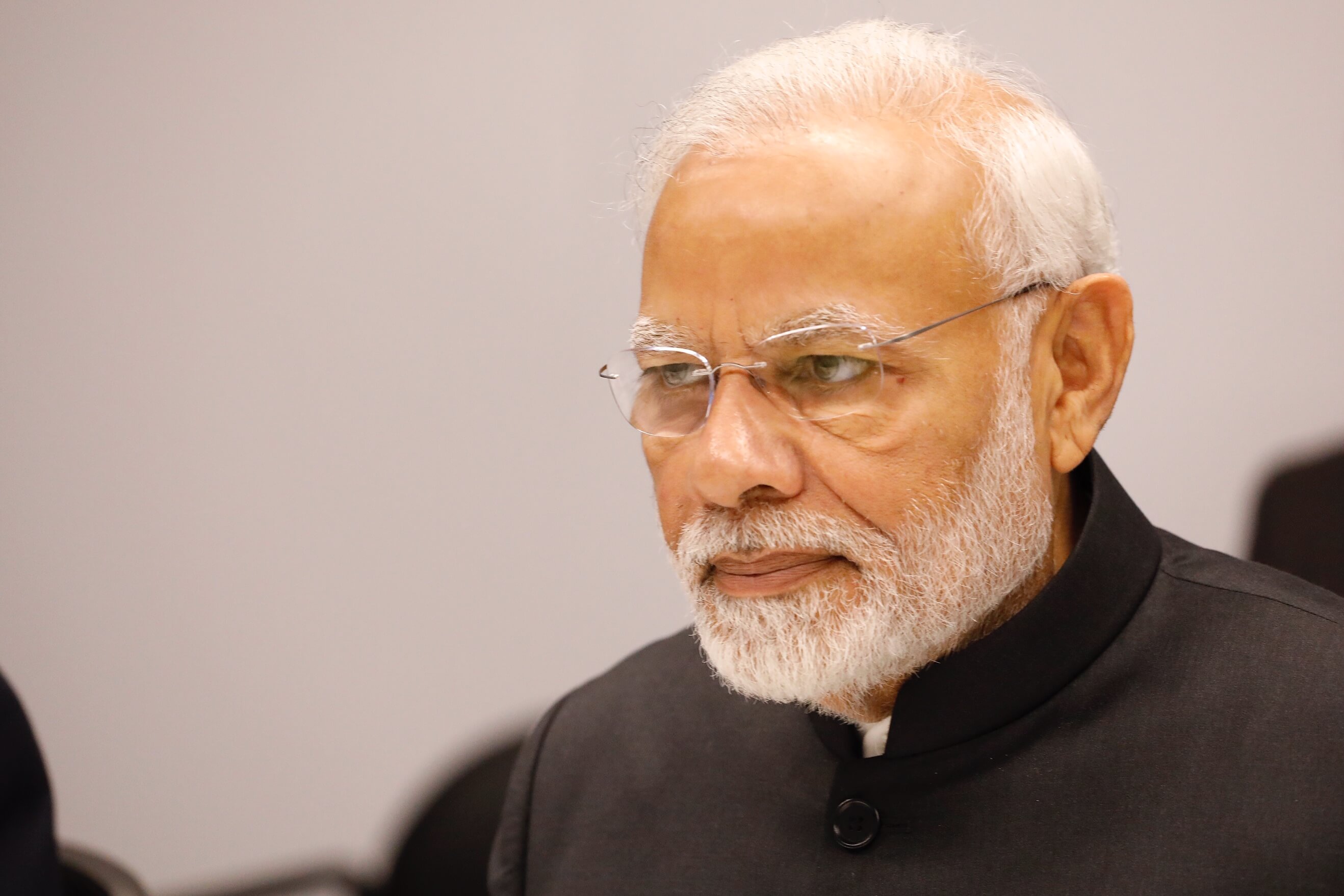The leaders of China, North Korea and Russia stood shoulder to shoulder Wednesday as high-tech military hardware and thousands of marching soldiers filled the streets of Beijing.
Two days earlier, Indian Prime Minister Narendra Modi, Russian President Vladimir Putin and Chinese President Xi Jinping huddled together, smiling broadly and clasping hands at a meeting of the Shanghai Cooperation Organization.
The gatherings in China this week could be read as a striking, maybe even defiant, message to the United States and its allies.
At the very least, they offered yet more evidence of a burgeoning shift away from a U.S.-dominated, Western-led world order, as President Donald Trump withdraws America from many of its historic roles and roils economic relationships with tariffs.
Trump himself indicated he was the leaders' target in a message on social media to Xi: “Please give my warmest regards to Vladimir Putin, and (North Korean leader) Kim Jong Un, as you conspire against The United States of America.”
But China’s military parade commemorating the 80th anniversary of the end of World War II, and the earlier economic gathering, is also simply more of the self-interested, diplomatic jockeying that has marked regional power politics for decades.
Each of these leaders, in other words, is out for himself.
Xi needs cheap Russian energy and a stable border with North Korea, his nuclear-armed wildcard neighbor.
Putin is hoping to escape Western sanctions and isolation over his war in Ukraine. Kim wants money, legitimacy and to one-up archrival South Korea.
Modi is trying to manage his relationship with regional heavyweights Putin and Xi, at a moment when ties with Washington are troubled.
The events highlight China’s regional aspirations
China is beset with serious domestic problems — stark economic and gender inequalities, to name two — and a tense standoff with Taiwan, the self-governing island that Beijing claims as its own.
But Xi has tried to position China as a leader of countries that feel disadvantaged by the post-World War II order.
“This parade showcases the ascendancy of China propelled by Trump’s inept diplomacy and President Xi’s astute statecraft,” said Jeff Kingston, a professor of Asian studies at Temple University Japan. “The Washington consensus has unraveled, and Xi is rallying support for an alternative."
China remains deeply wary of growing North Korean nuclear power
Some analysts caution against reading too much into Russia-China-North Korea ties. China remains deeply wary of growing North Korean nuclear power, and has long sought to temper its support — even agreeing at times to international sanctions — to try to influence Pyongyang’s pursuit of weapons.
“Though the Russia-North Korea tie has resumed to a military alliance, China refuses to return to the year of 1950,” when Beijing sent soldiers to support North Korea's invasion of the South and the USSR provided crucial military aid, said Zhu Feng, dean of the School of International Relations of Nanjing University. “It is wrong to believe that China, Russia and North Korea are reinforcing bloc-building.”
Russia looks to China to help ease its isolation
For the Kremlin, Putin’s appearance in Beijing alongside major world leaders is another way to shrug off the isolation imposed by the West on Russia in the wake of its full-scale invasion of Ukraine in February 2022.
 Russia does not want to anger Trump, who has been more receptive than his predecessor, particularly in hearing out Moscow's terms for ending its war with Ukraine
Russia does not want to anger Trump, who has been more receptive than his predecessor, particularly in hearing out Moscow's terms for ending its war with Ukraine
It has allowed Putin to take to the world stage as a statesman, meeting a host of world leaders, including Modi, Turkish President Recep Tayyip Erdogan, and Iranian President Masoud Pezeshkian.
And Putin’s reception by Xi is a reminder that Russia still has major trading partners, despite Western sanctions that have cut off access to many markets.
At the same time, Russia does not want to anger Trump, who has been more receptive than his predecessor, particularly in hearing out Moscow's terms for ending its war with Ukraine.
“I want to say that no one has been plotting anything; no one was weaving any conspiracies,” Putin’s foreign affairs adviser, Yuri Ushakov, said about Trump's social media message. “None of the three leaders had even thought about such a thing.”
Kim Jong Un walks a diplomatic tightrope in Beijing
The North Korean leader's trip to Beijing will deepen new ties with Russia while also focusing on the shaky relationship with his nation’s most crucial ally, and main economic lifeline, China.
Kim has sent thousands of troops and huge supplies of military equipment to help Russian forces to repel a Ukrainian incursion on their territory.
Without specifically mentioning the Ukraine war, Kim told Putin on Wednesday that “if there’s anything I can do for you and the people of Russia, if there is more that needs to be done, I will consider it as a brotherly obligation, an obligation that we surely need to bear.”
Kim can also claim a diplomatic victory as North Korea has gone from unanimously sanctioned by the U.N. Security Council to being embraced by UNSC permanent members Russia and China - Leif-Eric Easley
The Institute for National Security Strategy, a think tank affiliated with South Korea’s spy agency, said in a report this week that Kim’s trip, his first appearance at a multilateral diplomatic event since taking power in 2011, is meant to strengthen ties with friendly countries ahead of any potential resumption of talks about its nuclear program with Trump. The two leaders’ nuclear diplomacy collapsed in 2019.
“Kim can also claim a diplomatic victory as North Korea has gone from unanimously sanctioned by the U.N. Security Council for its illegal nuclear and missile programs to being embraced by UNSC permanent members Russia and China,” said Leif-Eric Easley, professor of international studies at Ewha Womans University in Seoul.
India’s Modi is playing a nuanced game
Modi is on his first visit to China since relations between the two countries deteriorated after Chinese and Indian soldiers engaged in deadly border clashes in 2020.
But the tentative rapprochement has its limits. Praveen Donthi, a senior analyst with the International Crisis Group, said the Indian leader did not participate in Beijing’s military parade because the “distrust with China still exists.”
 Even as he takes some steps toward China, the United States is also on Modi's mind
Even as he takes some steps toward China, the United States is also on Modi's mind
“India is carefully walking this tightrope between the West and the rest, especially when it comes to the U.S., Russia and China," he said. "Because India does not believe in formal alliances, its approach has been to strengthen its relationship with the U.S., maintain it with Russia, and manage it with China.”
Even as he takes some steps toward China, the United States is also on Modi's mind.
India and Washington were negotiating a free trade agreement when the Trump administration imposed 25% tariffs for New Delhi's purchases of Russian oil, bringing the combined tariffs to 50%.
Trade talks have since stalled and relations have significantly declined. Modi’s administration has vowed to not to yield to U.S. pressure and signaled it is willing to move closer to China and Russia.
But Donthi said India would still like to keep a window open for Washington.
“If Modi can shake hands with Xi five years after the India-China border clash, it could be far easier for him to shake hands with Trump and get back to strengthening ties, because they are natural allies,” he said.